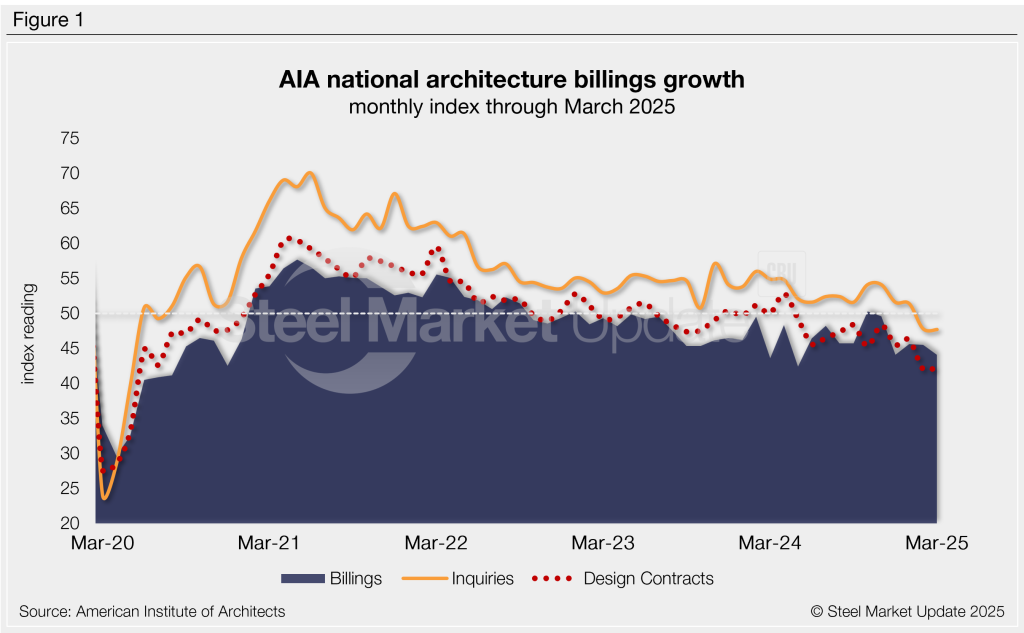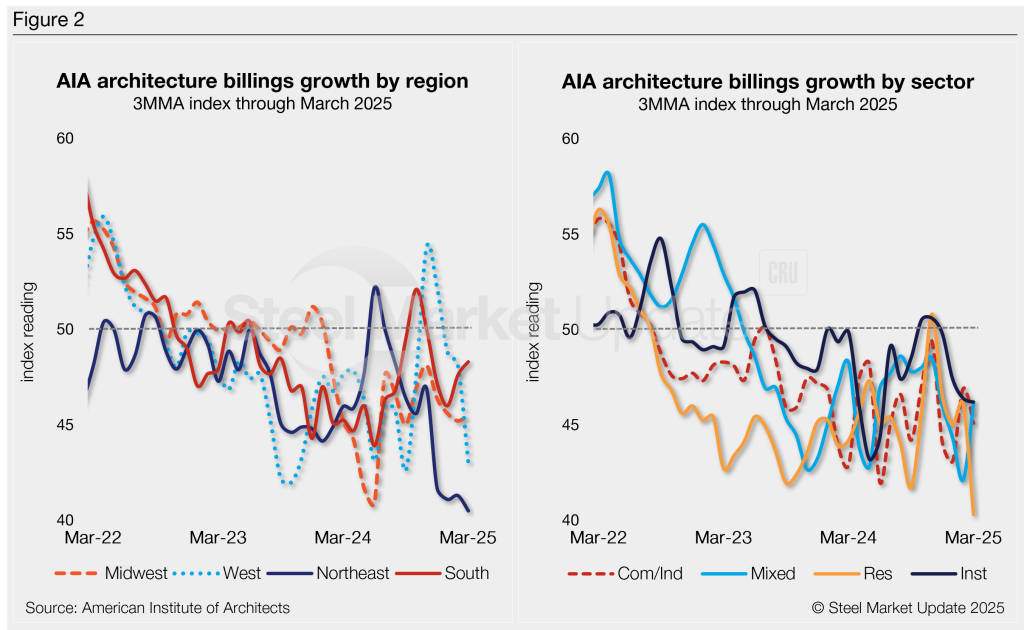Market Data

April 24, 2025
Architecture billings continue to slide in March
Written by David Schollaert
Architecture firms said billings continued to decline in March, according to the latest Architecture Billings Index (ABI) released by the American Institute of Architects (AIA) and Deltek.
The March ABI weakened to 44.1, off from 45.5 in February, indicating that a majority of firms are still experiencing a drop in firm billings.
A post-pandemic billings surge for architects ended in September 2022. Billings have grown in just three of the last 30 months. And inquiries into new projects have dropped for two straight months, according to AIA.
The ABI is a leading indicator for near-term nonresidential construction activity and projects business conditions ~9-12 months down the road (the typical lead time between architecture billings and construction spending). An index score above 50 indicates an increase in architecture billings, while a reading below 50 indicates a decrease.
AIA’s clients are holding off and unwilling to start projects because of economic uncertainty, according to AIA Chief Economist Kermit Baker.
“Unfortunately, this softness in firm billings is likely to continue as indicators of future work remain weak, however, the average project backlog at firms stands at a reasonably healthy 6.5 months, offering a bit of a buffer if future project work continues to remain soft,” Baker added.
Meanwhile, new signed design contracts have fallen for the 13th month in a row. It reflects hesitation to commit as the economy is too uncertain, AIA found.


An interactive history of the December Architecture Billings Index is available here on our website.







